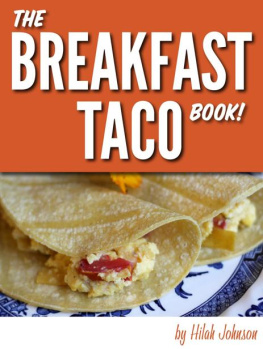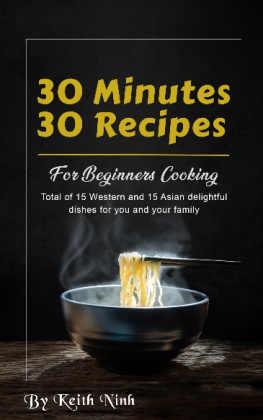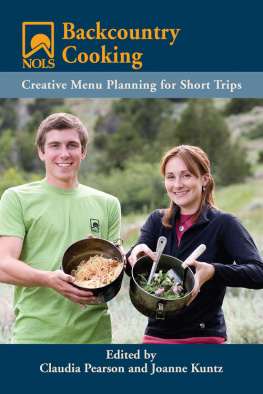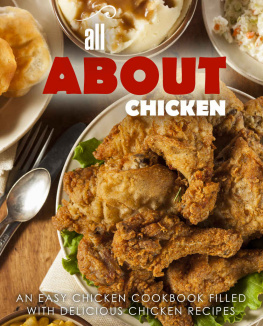Copyright 2012 by Hilah Cooking ISBN: 978-0-9886736-0-1 (print) Second Edition Published December 2012 (print) First Edition Published June 2011 (print) Dedicated to James Devery Designed by Christopher Sharpe Illustrations by Craig Matthew Staggs Photos of Hilah by Nadia Caffesse Special Thanks To: Bruce Alter
Kirby Conn
Jill Hoefling Jenny Lin
Laurel Kinney Adriene Mishler Diane Morrison Billy OLeary Jessie Tilton John Traigis
Natalie Vallot Sam Weber
Dustin Wills
For over 170 video recipes, visit HilahCooking.com!

QED stands for Quality, Excellence and Design. The QED seal of approval shown here verifies that this eBook has passed a rigorous quality assurance process and will render well in most eBook reading platforms.
For more information please click here.
LEARN
to
COOK
A Down and Dirty Guide to Cooking
(for People Who Never Learned How)
by Hilah Johnson
Contents
How to Use This Book
If youre thinking, Read it, you are correct.
I recommend you read it from the beginning to the end.
Dont worry about stopping to highlight or make flashcards or give yourself little vocabulary quizzes. I think you will recall enough information by the end of part one to actually start cooking some simple things. Do not be intimidated. Cooking is not rocket science. Cooking is for everyone.
Hopefully, the anecdotes and silly stories and jokes will do enough to hold your interest through the book, even if you dont really want to learn to cook but feel like you should learn to cook. Of course, for those who are really excited about learning to cook, and maybe even already know a little, this book has a lot of useful, real information for you, too.

Some of the recipes have accompanying video demonstrations on-line. Just look for this symbol and it will tell you what to type into your doohickey!
In Part One, we deal with terminology of cooking, as well as how to plan meals, grocery shop, and prepare foods for cooking. This is by no means a comprehensive dissertation on the culinary arts, but it covers all the big subjectsthe fundamentals that form the basis for all the other crazy things people do in the kitchen.
You may feel overwhelmed because it is a lot of information. Let me assure you again, you do not need to memorize the book or even understand everything in it before you begin your new cooking lifestyle. You will learn as you go, and with each success you will be more confident in your ability.
Part Two is where youll find the recipes. Tucked into the sidebars of this section youll also find more in-depth explanations of cooking techniques, choosing and prepping produce, unusual ingredients, and helpful tips. Theres so much information crammed in there, you probably will find it useful just to read over all the recipes, even the ones you may not be interested in at first glance.

Hi, Im Hilah! Who Are You?
Welcome to this book. This book will teach you how to cook food you like to eat. Food that will make you popular with friends. Food that wont cost you a million dollars. Food that is healthier than what you are probably eating now, as a person who does not know how to cook.
So you dont get the wrong idea, Im going to take a a few pages here to explain a little bit about my experiences and philosophy of food. That way, youll understand where Im coming from and what you can expect to get out of this book. Hopefully, this will all sound reasonable enough to you that we can be friends.
First, Ill state for the record that I am not a trained chef. But I have long been interested in food. Over the last twenty years, I have probably read more than a hundred books on cooking and nutrition and have been making cooking tutorial videos since 2010 at HilahCooking.com. The first cookbook I had was called Who Is That Short Chef? I think we picked it up one day at some kind of county fair or something I remember a turkey leg and a lot of dust in the air. It was a good little book for kids; there was even a page for kids to draw on! FUN!
A Note On Organic
This label has become very annoying to me, as ubiquitous as it is. Dont get me wrong, I believe organic farming is the way to go for the planet and for our bodies as well, but I will never, EVER list organic anything in any of my recipes. I think its obnoxious, in the same way that specifying good quality anything is obnoxious. Yes, I do buy organically grown (and local when I can) produce and meat when Im feeling rich. But I dont beat myself up over it when I cant afford it, and I dont think you should, either. Inform yourself and do your best, but dont go broke over it. That said, these are the Dirty Dozen, meaning the most worth it to buy organically: apples, celery, bell peppers, peaches, strawberries, nectarines, grapes, spinach, lettuce, cucumbers, blueberries, and potatoes.
You were supposed to draw what you (the short chef) looked like, but since my brother and I were sharing the book, the drawing (done by me, the elder) was a weird mish-mash of what my brother looked like and what I looked like, down to what we were wearing that day.
Anyway, I think I was about seven, and thats pretty much when I started cooking. From there on out, I loved reading cookbooks. Seriously. I mean, I already really liked reading and eating, so once I discovered cookbooks, I couldnt get enough.
As I got older, I got more interested in the chemistry of cooking, toonot just how to make brownies, which were my specialty for many years.
Also, my parents cooked. Nothing fancy or elaborate, but we definitely werent eating out all the time. My dads specialties were chili, chicken fried steak, and cream gravy. My moms specialty was using cookies to distract my brother and me from being annoying. She would put butter and sugar in a big bowl and tell us to go outside with it and sit in the sun until the butter was soft. Usually we would end up eating about half of the delicious butter-sugar mess before we went back inside.
My interest in nutrition specifically started when I was in high school and one day, like many alternative kids, decided that I was going to be A Vegetarian. Fortunately, I had hippie parents who were familiar with this alternative choice, and my mom gave me a book to readDiet for a Small Planet by Frances Moore Lappe, which is a great book that I recommend to anyone who is considering adopting a dead-animal-free diet. Its original premise was the theory of protein complementing (combining foods to create a full complement of amino acids and thus a full protein). The practice has since been rebuffed as unnecessary by the American Dietetic Association and the author herself, but it still makes sense to me in an intuitive way and in a delicious meal way.
NEwayz, the vegetarianism lasted about eight years and included a short-lived stint with veganism, but the fascination with nutrition and vitamins and junk has stuck with me.
With all that in mind, this is still my cookbook, and these are all things I eat. For the most part they are fairly well-balanced and healthy recipes. What I mean by healthy is: I keep a loose leash on my calorie and fat intake and include lots of vegetables and fruit. Im not a nutritionist but Im no dumbass, either. You wont find anything in here that calls for a stick of butter (well, except cookies) or a pound of bacon. What you might find is half a stick of butter and half a pound of bacon. To me, thats reasonable ... sometimes.









